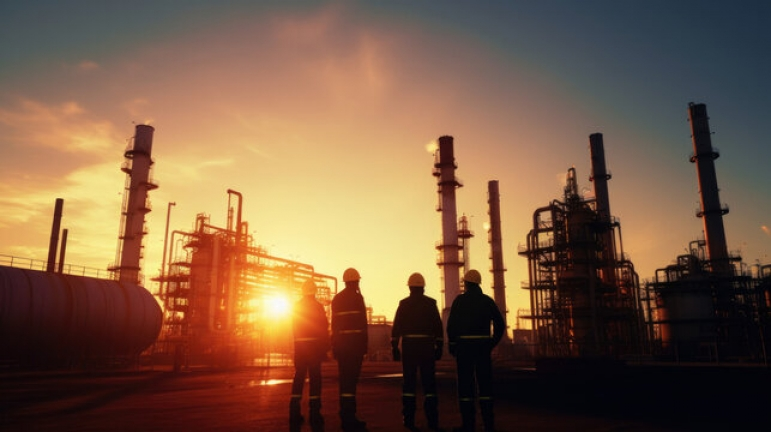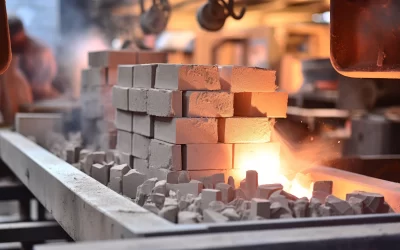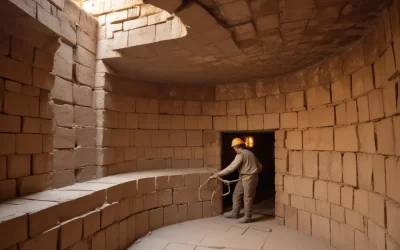Do you have questions about refractory materials? Our experts have you covered. We have years of experience as a leading refractory industry in India, providing quality-approved refractory materials utilizing trailblazing technology for better industrial performance. Refractory materials are the backbone of industrial sectors; from steel to iron to glass to list goes on.
To find the right refractory materials for your project, you need an in-depth understanding, and our team has always been there to help. Our team received so many phone calls and answers to hundreds of questions from customers each day that we thought we should share a rare set of common questions and answers about refractory materials with you. In this article, we will answer some of our most frequently asked questions. So without further ado, let’s get started!
5 Common FAQs – Answered by the Expert of Leading Refractory Industry!
Here are some of the most common questions refractory buyers ask regarding quality, shelf-life, and selection guidance. Our expert team has answered them in-depth so that you are able to make informed decisions. Here’s your answer!
1. What Type of Binders are Used for Bricks Laying with Mortars?
In the construction industry, binders have been used since the early 20th century. Men have constructed masonry structures for many, many years. Over time, several categories of binders emerged that performed better than others for mortar, plaster, and stucco. There are four types of natural lime putty: natural hydraulic lime, Portland cement, and natural cement. In bricklaying with mortar, the binder used is called Portland cement, which is made from limestone, clay, and other materials. The right choice of binder and mortar will enhance the strength as well as provide a waterproof bond between the bricks or even walls.
2. Do Refractory Bricks Have Shelf Life?
There are different types of refractory bricks, and their shelf life and service life are determined by a range of essential parameters. Refractory bricks that are made using rigorous techniques, have their quality verified, and are fired during the manufacturing process can ensure a good shelf life. On the other hand, refractory bricks are considered may not have a specific shelf life but are more likely to undergo damage from exposure to inappropriate environments.
When used improperly, it may be damaged within one or two months. The shelf-life of a refractory material can be extended to five to ten years if used properly. It is therefore very important that you purchase high-quality refractory bricks from reputable refractory manufacturers in India. In Ganeshas, the best refractory material manufacturer, we take care of every aspect of the manufacturing process to ensure robust and quality-approved refractory material that enhances industrial applications’ performance.
Example – Refractory bricks like Insulation fire bricks and dolomite bricks should be stored in a manner that protects bricks from moisture.
3. What are the Characteristics of Good Refractory Materials?
This is the most common question consumers ask us while purchasing refractory materials in India. The answer to this question is straightforward, but to make sure they get value for money when choosing refractory material for their project, refractory buyers should consider a few factors. The following are some characteristics of high-quality refractory materials that you should be familiar of.
Characteristics of Refractory Materials:
– Good slag/chemical attack resistance.
– An efficient thermal conductivity.
– Bulk density.
– Adequate porosity.
– Chemically and physically stable at high temperatures.
– Materials should have high RUL (Refractory under load).
4. Which type of Refractory Castable Should I Use?
When choosing refractory castable there are several key factors to consider while ensuring the right purchase for result-oriented performance. The sort of refractory castable you should use is determined by the application, such as the temperature range, material to be cast, and application type. High-purity alumina, chromite, and fused silica are commonly preferred refractory castable for building efficient furnaces & kilns. To get the best refractory castable materials in India – reach out to us right away.
5. What are the Best Refractory Materials for the Construction Industry?
The answer to that question is quite tricky, as the construction industry relies on a wide variety of refractory materials, depending on the specifications, properties, and project requirements. However, due to high demand, customers have requested High Alumina bricks with phosphate-bonded bricks and castable. Accordingly, we count the “best refractory material of the year” as the High Alumina bricks with phosphate and castable as the “best refractory material of the year”. If you are interested in buying the best refractory material for the construction industry, get in touch with us to get proper guidance.
More Questions? Get in Touch!
As a leading refractory manufacturer in India, Ganeshas Refractories has provided a valuable service by addressing frequently asked questions related to refractory materials. Their expert answers serve as an invaluable resource for individuals and businesses seeking to make well-informed decisions in this industry. If your question is not on the list, we will respond as soon as possible with additional refractory material FAQs. Can’t wait? Contact us right away!




